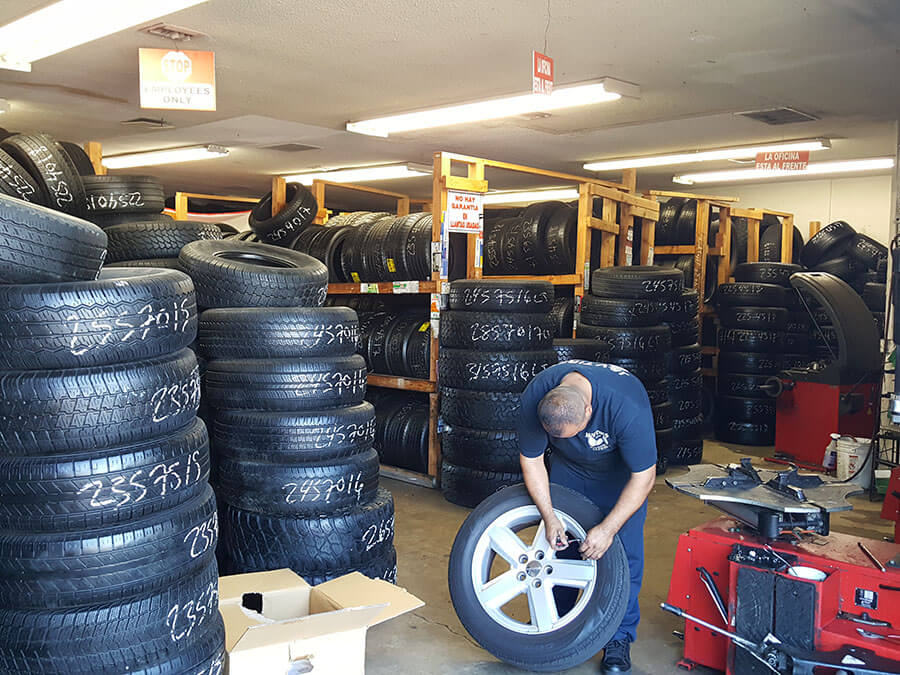Tire Service: Understanding Tire Pressure Surveillance Solutions
Understanding Tire Stress Surveillance Systems (TPMS) is an essential facet of maintaining ideal automobile efficiency and security when driving. With innovations in auto modern technology, TPMS has actually come to be a conventional feature in modern vehicles, supplying real-time information on tire stress levels. Delving much deeper right into the ins and outs of TPMS, one can uncover the numerous elements that make up this system and the relevance of each in guaranteeing accurate surveillance. From direct to indirect TPMS systems, the landscape of tire stress monitoring varies, each with its special collection of considerations and advantages. Remain tuned to untangle the complexities of TPMS, from upkeep tips to the obvious advantages of keeping your tires properly pumped up. discount tires morris il.

Value of TPMS
The relevance of Tire Pressure Monitoring Equipments (TPMS) depends on their capacity to enhance car safety and performance via real-time monitoring of tire stress levels. Keeping the proper tire pressure is critical for making sure optimal handling, stopping, and general security of a lorry. TPMS supplies vehicle drivers with prompt comments on any underinflated or overinflated tires, permitting for prompt changes to be made.
Parts of TPMS
Sensing units are normally situated in the tire valve stem or affixed to the wheel assembly, where they gauge tire stress and send information to the control component. Some progressed TPMS versions additionally display the actual tire stress analyses for each tire, providing drivers with real-time information to guarantee optimal tire performance and safety. By monitoring tire pressure continuously, TPMS aids protect against accidents, lowers tire wear, and boosts gas effectiveness, making it a critical part for lorry safety and security and efficiency. morris tire and alignment.
Sorts Of TPMS

On the various other hand, indirect TPMS relies on the car's wheel rate sensors to monitor tire pressure. This system detects underinflation by contrasting the rotational rates of the wheels. Indirect TPMS is much less expensive than straight TPMS, as it utilizes existing sensors within the automobile.
While straight TPMS provides extra accurate readings, indirect TPMS is less complex in design and commonly requires much less upkeep. Both systems have their restrictions and benefits, and the selection between them usually depends on elements such as price, vehicle make, and individual choice. Recognizing the differences between these 2 sorts of TPMS can aid car proprietors make informed decisions relating to tire upkeep and security.
TPMS Upkeep Tips
Effective maintenance of TPMS is essential for ensuring optimal performance and safety of your vehicle. Consistently inspecting the TPMS sensors for any type of damage or rust is vital. Ensure that the sensing units are tidy and free from debris that might disrupt their important source functioning. Additionally, it is recommended to inspect the sensing unit batteries regularly and change them as needed to ensure precise analyses. Conduct regular checks on the tire stress degrees and contrast them with the TPMS analyses to guarantee they correspond. If there are any kind of inconsistencies, rectify the system adhering to the producer's guidelines. Throughout tire turning or substitute, make certain that the TPMS parts are handled carefully to stop any potential damage. If the TPMS alerting light brightens on the control panel, address the issue promptly by examining the tire pressures and the overall system for any type of mistakes. By adhering to these upkeep tips, you can extend the lifespan of your TPMS and boost the safety of your driving experience.
Advantages of Appropriate Tire Pressure
Preserving proper tire pressure, as emphasized in TPMS Upkeep Tips, is essential for enjoying the various benefits associated with optimum tire stress degrees. Furthermore, correct tire pressure ensures also tire wear, extending the life-span of the tires and promoting more secure driving conditions. In final thought, the advantages of proper tire pressure go past simply tire longevity; they encompass enhanced fuel efficiency, improved safety, better lorry efficiency, and overall driving comfort.
Final Thought
To conclude, recognizing tire pressure surveillance systems my company (TPMS) is critical for keeping ideal tire pressure and guaranteeing car safety and security. By identifying the value of TPMS, being acquainted with its components, knowing the various kinds available, sticking to proper maintenance ideas, and understanding the benefits of preserving appropriate tire stress, drivers can enhance their driving experience and prolong the life-span of their tires. Correct tire pressure is crucial to secure and reliable vehicle procedure.

Comments on “Get Expert Tire Services at Tire Shop Morris: Satisfaction Guaranteed”